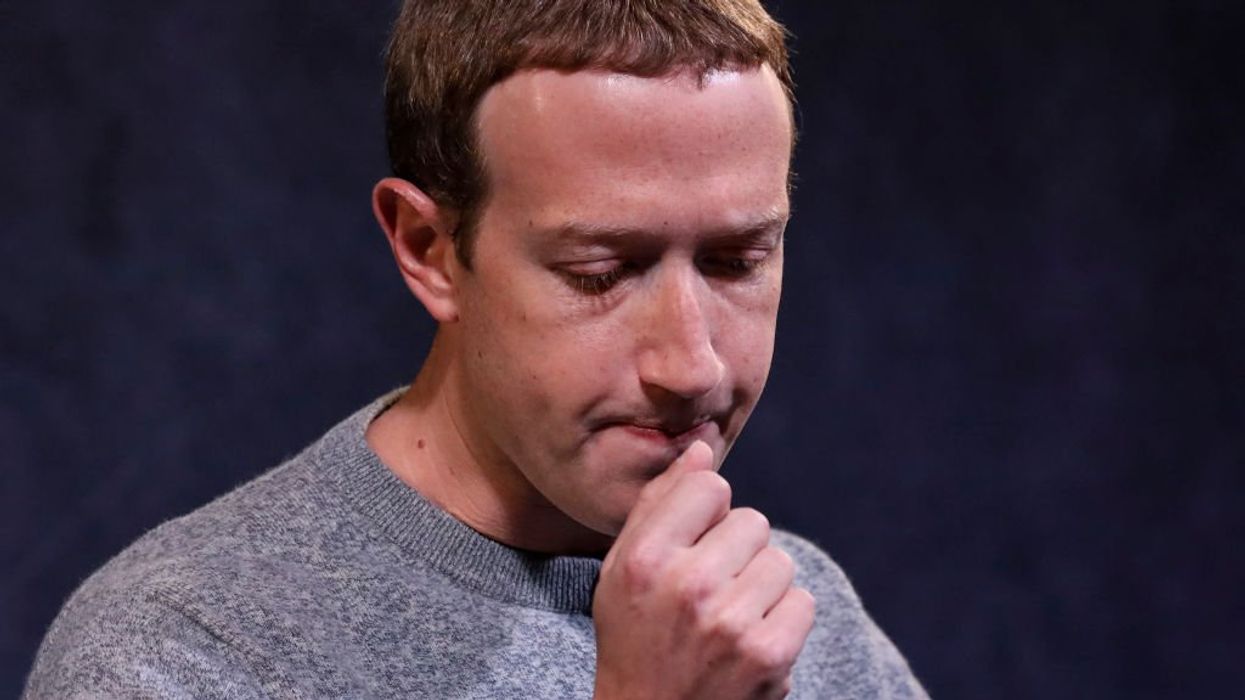
Photo by Drew Angerer/Getty Images

Georgia Republicans have taken another meaningful step toward ensuring that outside forces cannot financially meddle in their state elections.
Gov. Brian Kemp ratified state Sen. Max Burns' (R) Senate Bill 222 on Wednesday, ensuring that "all costs and expenses relating to election administration are paid for with lawfully appropriate public funds."
As of July 1, local governments in the state will be prohibited from accepting any funding for elections from outside groups. Government officials or election workers found in violation could face felony charges.
According to the Atlanta Journal-Constitution, clamping down on financial interference from out of state became a priority for Republicans in Georgia and further afield after the Center for Tech and Civic Life, an outfit founded by Meta CEO Mark Zuckerberg, poured over $400 million into election offices nationwide in 2020.
$45 million of this cash — or what some Republicans call "Zuckerbucks" — went to local election offices in Georgia.
Some of this money allegedly went toward acquiring equipment to process mail ballots, voter outreach, and hiring staff.
Rep. Claudia Tenney (R-N.Y.) noted in late 2021 that 90% of the so-called Zuckerbucks went to blue counties.
"CTCL funneled Mark Zuckerberg's private wealth to Democratic-leaning counties to drive up turnout there, while underinvesting in counties likely to break for Trump," wrote Tenney.
\u201cThis side-by-side comparison shows the dramatic difference in how CTCL funneled Mark Zuckerberg's private wealth to Democratic-leaning counties to drive up turnout there, while underinvesting in counties likely to break for Trump.\u201d— Rep. Claudia Tenney (@Rep. Claudia Tenney) 1640015423
Zuckerbucks and other strategically invested outsider election funds have not just been a problem for Georgia, which explains why 24 other states have similarly advanced solutions, according to the National Conference of State Legislatures.
"Currently, over one-third of the states have passed laws prohibiting or limiting the use of private funds in elections. Eleven states did so in 2021 (similar bills were vetoed in Louisiana, Michigan, North Carolina, Pennsylvania and Wisconsin that year), and 13 states followed suit in 2022," reported the NCSL.
"The specifics vary, with some states passing outright bans on election officials accepting or using philanthropic funds and others setting new regulations on how and when such funding can be accepted," the NCSL added.
Former Republican U.S. Sen. Kelly Loeffler, founder of the voter registration organization Greater Georgia, indicated that the bill signed into law by Kemp this week "builds on previous law to ensure that our election operations are never bought and paid for by partisan or special interests."
Loeffler was referencing Georgia's Senate Bill 202, passed in 2021, which barred election officials from accepting outside grants and funding from private organizations.
The Associated Press indicated that despite SB 202, it was previously "widely understood" that individual counties could still accept money from outside groups and funnel those funds over to election administrators.
For instance, in early 2023, the overwhelmingly blue DeKalb County picked up $2 million from the U.S. Alliance for Election Excellence, which includes Zuckerberg's go-to funding outfit from 2020.
Senate Bill 222 puts such misunderstandings to bed.
"We should not be seeing partisan outside interests funneling money into counties for one party or another," state Rep. Houston Gaines (R) said in March, when the SB 222 cleared the House. "It’s common sense to make sure we’re banning outside money in our public elections."
Like Blaze News? Bypass the censors, sign up for our newsletters, and get stories like this direct to your inbox. Sign up here!